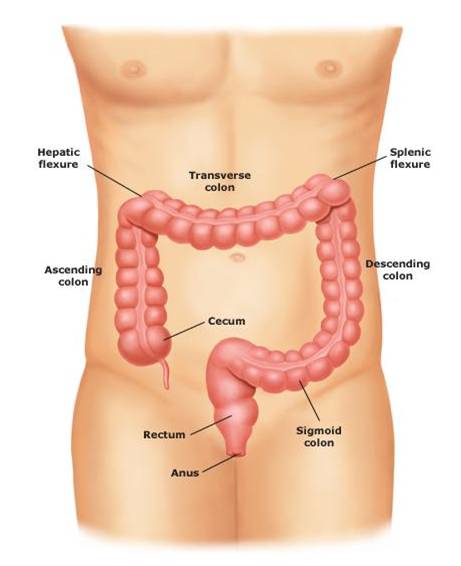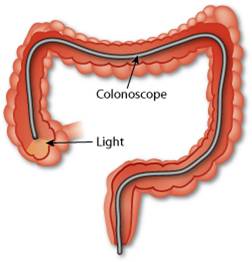What is a Colonoscopy?
Colonoscopy is a procedure involving the use of an endoscope to directly examine the lower gastrointestinal tract, including the terminal ileum, colon and rectum. The colon is initially cleansed using purgatives such as polyethylene glycol or an oral Fleet preparation. The procedure is then performed as a day-surgery procedure by a trained endoscopist, who may be a gastroenterologist or a surgeon.
Colonoscopies are an important tool in screening for Colorectal Cancer (CRC) and are considered the gold standard for early detection of tumours and pre-cancerous polyps. One significant advantage of colonoscopy is that it allows for the sampling of tissue for histologic examination (microscopic analysis of cells) and the removal of polyps, potentially obviating the need for open surgery.

Who should have a Colonoscopy?
Colonoscopy is recommended for individuals needing:
- Colon cancer screening
- Assessment for polyps or follow-up of previous polyps
- Evaluation of bowel symptoms
- Investigation in cases of anaemia
- Examination for blood in the stools
- Diagnosis of inflammatory bowel disease, including ulcerative colitis and Crohn's disease.
- Evaluation of chronic Diarrhoea
How do I prepare for one?
For an effective colonoscopy, the colon must be completely empty. This generally involves bowel cleansing, for which instructions will be provided. The preparation may include consuming polyethylene glycol or laxatives, followed by water to cleanse the bowel. Incomplete preparation may necessitate rescheduling the procedure.
Patients should discuss medication continuation with their doctor, particularly for blood thinners warfarin, aspirin or diabetes medication.
How is a Colonoscopy performed?
Light sedation is administered for relaxation and to alleviate discomfort. Patients may feel pressure, bloating or cramping during the procedure, but these sensations are generally well-tolerated. The doctor will carefully advance a colonoscope though the colon to inspect its lining. The procedure typically lasts 15 to 30 minutes.

What happens after a Colonoscopy?
After the colonoscopy, patients are monitored until sedation effects subside, followed by discharge. Operating machinery or driving is not advised until the next day due to the sedative effects, which can impair reflexes.
Mild cramping or bloating from the air introduced into the colon may occur, improving rapidly once gas is passed. Normal eating can resume the same day, and regular activities can continue the following day.
Colonoscopy is a safe procedure with rare complications. These may include bleeding (less than 1%) and bowel perforation (0.2%). Bleeding can occur up to two weeks post-procedure, and in rare cases, surgical intervention may be necessary. Some patients might react to sedation. In the event of severe abdominal pain, fever, or rectal bleeding post-colonoscopy, it is imperative to contact a doctor immediately.



















